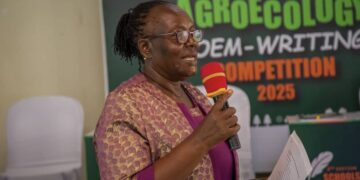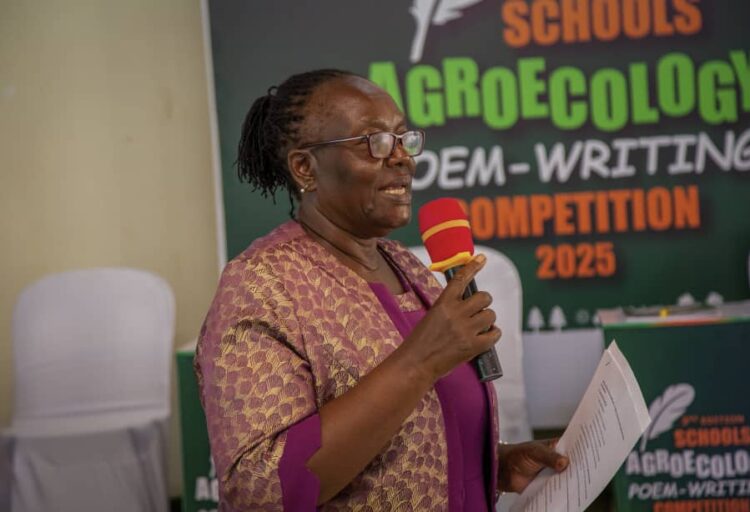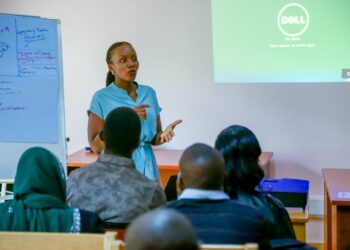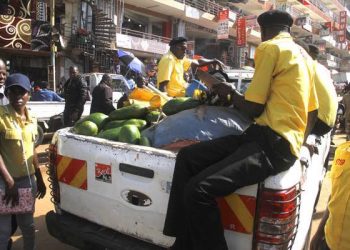KAMPALA
What began as a poetry contest for schoolchildren quickly grew into a rallying cry for the future of Uganda’s food systems. The National Schools’ Agroecology Poem Writing Competition, held at Namugongo Kyoto (Les Foyers de Charité), blended youthful creativity with urgent appeals from experts for Uganda to shift decisively toward agroecology.
The competition, organized by the Eastern and Southern Africa Small Scale Farmers Forum (ESAFF Uganda) and partners, brought together finalists from schools across the country to showcase poems on food systems, environmental protection, and the promise of agroecology. The event did not only reward talent; it became a platform where policymakers were pressed to act on sustainable farming as a national priority.
In the Primary School category, Daniel Tumwine from Buhinga Primary School (Fort Portal District) took the top prize with a poem that celebrated the harmony between nature and farmers. Nalebe Daizy of Cosna Day Care and Primary School (Mityana District) won second place, while Tukamushaba Christine from Rutooma Primary School (Kabale District) placed third.
Among the older learners, Ainembabazi Joan of St. Peters SS Nsambya (Kampala District) was crowned the overall winner in the Secondary School category. Opakrwoth Saviour of St. Aloysius College Nyapea (Zombo District) and Nantongo Patricia Peace of St. Joseph Naama Modern SS (Mityana District) emerged as first and second runners-up respectively.
The winners were celebrated not just for their creativity but also for their ability to voice, through poetry, the concerns of millions of farmers and citizens affected by chemical-intensive agriculture.
Policy Concerns
While the children’s performances electrified the audience, experts and advocates seized the moment to push for policy reforms. Mr. Bwambale Benard, the Program Head at the Global Consumer Centre (CONSENT), urged leaders to turn policy rhetoric into concrete action.
“To our policy makers who are here, our policies that we make up there should be tailored to supporting communities towards agroecology, so that we minimize the use of chemicals,” Benard stressed. “But as long as our policies are not tagged to agroecology, we are doomed as a country.”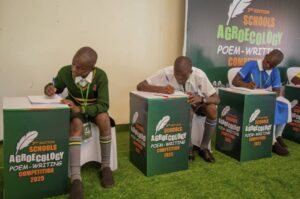
Benard’s message was a sober reminder that Uganda’s food future hinges not just on awareness campaigns but on deliberate budget allocations and stronger legislation to protect farmers and consumers alike.
Agroecology as the Future
Hakim Baliraine, the National Chairperson of ESAFF Uganda, echoed this call, describing agroecology as the only viable pathway for sustainable farming. He argued that agriculture should not be treated as a secondary subject in Uganda’s education system.
“If someone speaks English very well, so what? Why can’t agriculture—the foundation of food and life—be compulsory?” Baliraine asked, adding that curriculum reforms must prioritize agroecology if Uganda is to build a resilient generation of farmers and environmental stewards.
He highlighted ESAFF’s efforts, including community agroecology schools and curriculum development with universities, which aim to make agroecology a practical and relatable approach for young people. According to the organizers, the competition draws no boundary between private and UPE, and USE schools – Unifying the two spheres of education system in Ugandan education.
Government officials at the event acknowledged the urgency of the calls. Sir Sunday Bob George, the Ministry of Agriculture’s focal person for organic agriculture and agroecology, noted that Uganda has made strides with the National Organic Agriculture Policy (2019) and is finalizing a national agroecology strategy.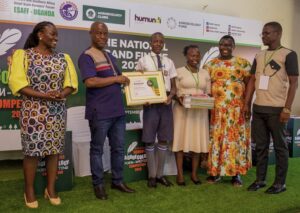
“As government, we have not folded our hands,” he assured. “We are working to ensure that whatever we do conserves agricultural biodiversity and does not spoil nature. We need multiple approaches, but agroecology must remain central.”
From the education front, Dr. Grace Baguma, Executive Director of the National Curriculum Development Centre (NCDC), praised the competition for complementing Uganda’s new competency-based curriculum.
“This intervention is helping us to support the expectations of the new curriculum, especially projects that are agricultural, agroecological, and environmentally based,” Dr. Baguma said. “It focuses on what children are manipulating in their environment and doing things that add value to their lives and to the communities where they live.
The Namugongo event demonstrated that agroecology is not just a farming method but a holistic system linking health, education, environment, and livelihoods. Through poetry, children highlighted the dangers of pesticides, the importance of biodiversity, and the responsibility of both government and communities to protect the land.
